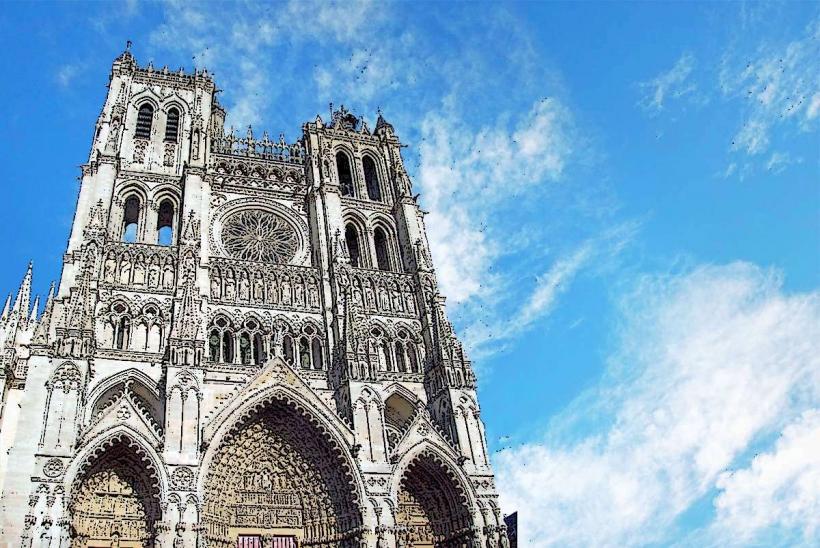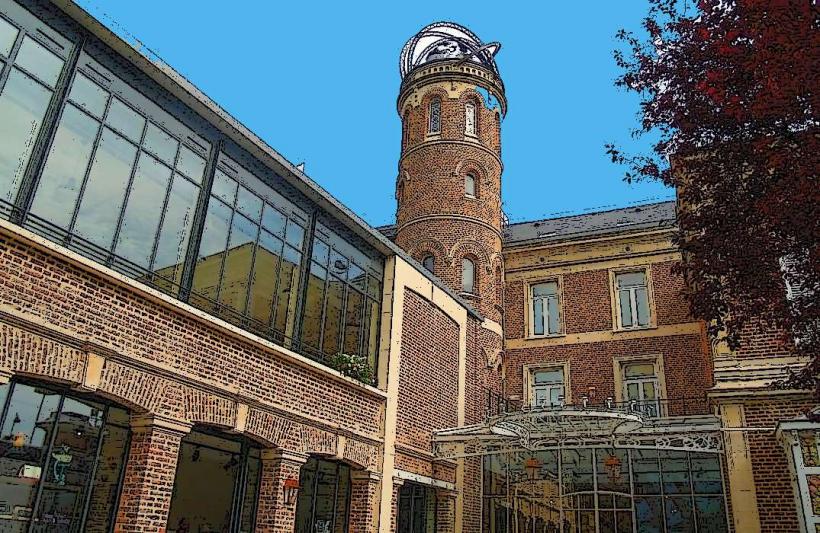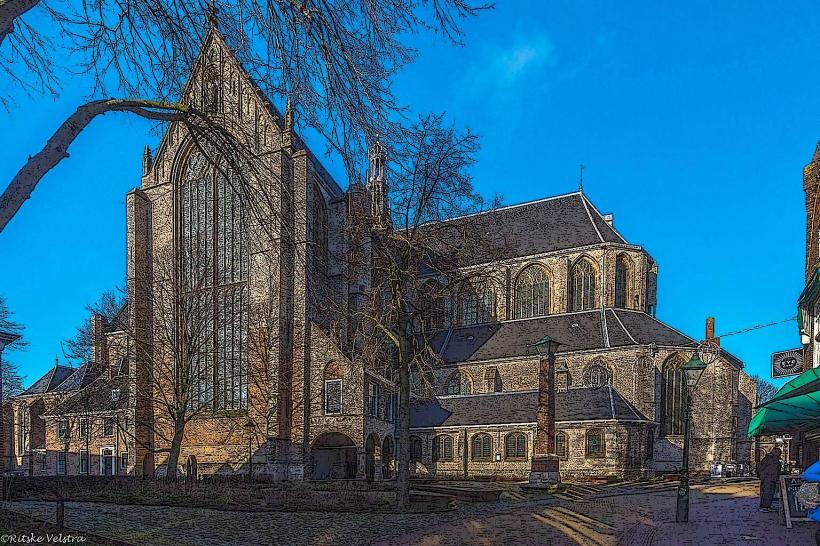Information
Landmark: Hortillonnages Floating GardensCity: Amiens
Country: France
Continent: Europe
Hortillonnages Floating Gardens, Amiens, France, Europe
The Hortillonnages are a 300-hectare expanse of ancient marshlands converted into floating gardens, located in the Somme River valley within the city of Amiens. The site consists of a network of man-made islands and narrow canals, known locally as "rieux," which are primarily used for market gardening and private leisure.
Visual Characteristics
The landscape is characterized by approximately 65 kilometers of navigable waterways surrounding fertile peat islands. Vegetation is dense, featuring weeping willows, poplars, and cultivated vegetable plots interspersed with ornamental flower gardens and small wooden cabins. The water is generally dark and still, reflecting the surrounding greenery, while the soil is high in organic matter, appearing black and saturated.
Location & Access Logistics
The primary entrance for boat tours is located at 54 Boulevard de Beauvillé, approximately 1.2 kilometers northeast of the Amiens Cathedral. Access from the city center is available via a 15-minute walk or by utilizing the Ametis bus network, specifically lines L1, L3, or L4 to the "Beauvillé" stop. For those arriving by car, limited street parking exists along the boulevard, with larger public lots available at the nearby Parc Saint-Pierre.
Historical & Ecological Origin
The site originated as a marshland that was drained and transformed during the Gallo-Roman period for peat extraction and agriculture. By the Middle Ages, the "hortillons" (market gardeners) had established a sophisticated irrigation system of canals to cultivate the fertile silt. Ecologically, the area is classified as a wetland ecosystem that provides a critical habitat for various bird species, including kingfishers and herons.
Key Highlights & Activities
Guided tours are conducted in traditional flat-bottomed boats called "barques à cornet," propelled by electric motors to minimize environmental impact. The International Garden Festival occurs annually between May and October, showcasing contemporary art installations and landscape architecture across specific islands. Pedestrian access is available via the Chemin de Halage (towpath), which offers a route for cycling and walking along the Somme.
Infrastructure & Amenities
Visitor facilities at the main pier include a reception building with public restrooms and a small ticket office. While the towpaths have high-speed 5G cellular coverage, signal strength can fluctuate deep within the interior canal network. Shade is abundant due to tree cover, but there are no food vendors located on the islands; dining options are concentrated in the adjacent Saint-Leu district.
Best Time to Visit
The gardens are open to the public from April 1st through October 31st. The optimal time for photography is during the morning hours when the water surface is most calm and the light is filtered through the willow canopy. Market gardening activity is most visible in late spring and summer, while the autumn months provide significant foliage color changes.
Facts & Legends
A traditional "Market on the Water" (Marché sur l'eau) is held annually in June, where hortillons dressed in period costume transport their produce by boat to the Saint-Leu district, recreating the historical distribution method used for centuries. A local curiosity is that some islands are only accessible by private boat, maintaining a lifestyle where inhabitants must transport all materials, including lawnmowers and construction supplies, across the canals.
Nearby Landmarks
Amiens Cathedral: 1.1km West
Parc Saint-Pierre: 0.4km West
Saint-Leu District: 0.9km West
Maison de la Culture d'Amiens: 1.8km Southwest
Le Jardin Des Vertueux: 0.2km East






